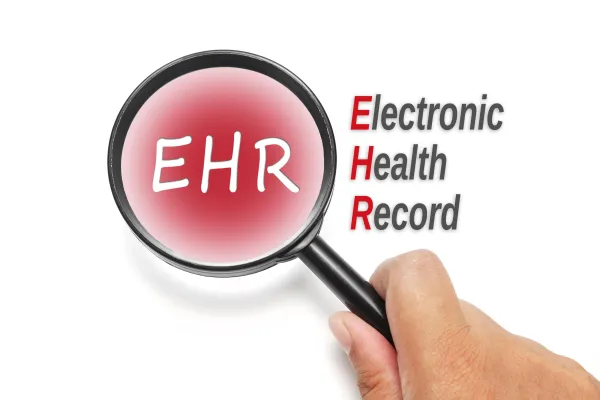Otolaryngology Coding Alert
Keep an Ear Out for These MPFS ENT Proposals
Expanded audiology access ahead but CF will likely decrease. Expect some give and take in the calendar year (CY) 2023 Medicare Physician Fee Schedule (MPFS) proposed rule, released July 7. Actions everyone can get behind include the Feds aiming to further advance health equity and expanding access to top-notch comprehensive healthcare for all. But beware — physicians may be facing more payment cuts in the coming year. The 2,066-page fee schedule includes sweeping changes for the provision of audiology services in addition to suggested policy updates surrounding key issues like evaluation and management (E/M) services, dental care, and telehealth. Here’s a glimpse of three proposals that may impact your Medicare pay and policies. Rate Setting Revamped, Conversion Factor Reduced Notably, the rule proposes cutting the 2023 MPFS conversion factor (CF) to $33.08. This represents a decrease of $1.53 from the 2022 CF of $34.61, reducing Medicare payment rates by 4.42 percent. This negative adjustment is largely a result of the 3 percent increase in MPFS payments for 2022 expiring as required by the Protecting Medicare and American Farmers From Sequester Cuts Act. Also contributing to the drop in next year’s rate is the budget neutrality adjustment to account for changes in relative value units (RVUs) and a 0 percent CF update. The physician community is not pleased with the 2023 MPFS proposed rule based on immediate reactions from physician advocacy groups. “It is immediately apparent that the rule not only fails to account for inflation in practice costs and COVID-related challenges to practice sustainability, a significant and damaging across-the-board reduction in payment rates,” Jack Resneck Jr., MD, president of the AMA, said in a statement last month. “Such a move would create long-term financial instability in the Medicare physician payment system and threaten patient access to Medicare-participating physicians,” he warns. Waiver to Broaden Access to Audiology Services In an effort to expand access to select audiology services, the Centers for Medicare & Medicaid Services (CMS) proposes to remove the physician order requirement under certain circumstances for certain audiology services furnished personally by an audiologist for non-acute hearing conditions. Although, “this is something that the otolaryngology community has fought,” says Barbara J. Cobuzzi, MBA, CPC, COC, CPC-P, CPC-I, CENTC, CPCO, CMCS, of CRN Healthcare in Tinton Falls, New Jersey. “They feel that access to audiologists without an order can result in patients’ medical problems being missed and possible problems going directly to audiologists — possibly in practice outside of and independent of an otolaryngologist’s office — that may miss a true medical problem.” In the proposed rule, the agency specifies that these non-acute hearing conditions would not include balance assessments that are used for patients with disequilibrium because it believes the physician or nonphysician practitioner (NPP) needs to first evaluate the patient clinically due to the many potential serious medical conditions they might have and ensure the patient is cleared medically before setting them on track to receive vestibular function tests from an audiologist. Learn About New Code Rollout To facilitate reporting, CMS proposes to create HCPCS Level II code GAUDX (Audiology service(s) furnished personally by an audiologist without a physician/ NPP order for non-acute hearing assessment unrelated to disequilibrium, or hearing aids or examinations for the purpose of prescribing, fitting, or changing hearing aids; (service may be performed once every 12 months)) to describe these audiology services furnished personally by an audiologist without the order of the treating physician or NPP. Under this proposal, the code would include and be used to bill for any number of audiology services furnished in that particular patient encounter, including those that are split into professional and technical components (PC/TC). As with all services, the audiologist would need to document the specific tests provided and their results in the medical record for purposes of medical review. CMS is also proposing that no more than one unit of code GAUDX could be billed — that means inserting a “1” in the “days or units” block 24G on the CMS 1500 professional claim form. And to avoid the potential for inappropriate use, the agency plans to establish system edits to ensure that GAUDX is only paid once every 12 months for every patient. To value GAUDX, the agency proposes to use the combined values of CPT® codes 92557 (Comprehensive audiometry threshold evaluation and speech recognition (92553 and 92556 combined)) and 92567 (Tympanometry (impedance testing)), which it believes represents a typical service provided by audiologists. This would result in a total work RVU of 0.8 for GAUDX, calculated by combining the 0.60 work RVU for 92557 and 0.20 work RVU for 92567. Likewise, the practice expense (PE) for GAUDX would be established by combining the unduplicated PE of CPT® codes 92557 and 92567. Lastly, CMS proposes to apply the same provisions for code GAUDX — PC/TC indicator, bilateral indicator, physician supervision indicator, etc. — as those set for 92557 and 92567, as they now appear in the MPFS relative value file. CMS seeks comment on: Beware: “Providing the new audiology service, which does not require an order, should reduce some patient workflow issues in the otolaryngology practice since the audiologist may see the patient prior to the doctor ordering audiometric testing. But keeping track of each patient’s receipt of their once-a-year allowed HCPCS Level II audiology testing without an order will require the practice to put in additional tracking to ensure that they do not provide audiology services without an order more than once a year. Because this service is limited to once a year, this could cause the practice to provide testing that is not payable once the remittance is received back from Medicare showing that the unordered audiology had already been paid for that 12-month period, making the current service non-payable,” explains Cobuzzi. Extension of Covered Telehealth Services In response to the spread of COVID-19, the Medicare telehealth services list was expanded to include select audiology testing services. CMS has proposed maintaining a number of the temporary public health emergency (PHE) telehealth codes in place as Category III telehealth codes through at least 2023 to gather more data for future consideration of eventual permanent status as Medicare telehealth allowed services. The Overall Trend The 2023 MPFS proposed rule seeks to advance programs to improve the quality of care for people with Medicare by incentivizing clinicians to deliver improved outcomes. These actions are aimed at driving innovation to support health equity and expanding access to vital medical services like behavioral health care, dental care, and cancer treatment options, according to CMS. “Integrated coordinated, whole-person care — which addresses physical health, behavioral health, and social determinants of health — is crucial for people with Medicare, especially those with complex needs,” said CMS Deputy Administrator and Director of the Center for Medicare Dr. Meena Seshamani. “If finalized, the proposals in this rule will advance equity, lead to better care, support healthier populations, and drive smarter spending of the Medicare dollar.” Comments: The proposed rule is open for comment, with the release of the final rule in late fall 2022. To offer CMS your two cents on the proposed rule and CF reduction, submit your comments by Sept. 6 at www.regulations.gov/document/ CMS-2022-0113-0001. Resource: Review the CY 2023 MPFS proposals at public-inspection.federalregister.gov/2022-14562.pdf.

Related Articles
Otolaryngology Coding Alert
- Medicare Physician Fee Schedule:
Keep an Ear Out for These MPFS ENT Proposals
Expanded audiology access ahead but CF will likely decrease. Expect some give and take in [...] - News You Can Use:
Consider These Crucial ICD-10-CM Revisions, Get a Head Start on 2023
Find expanded options for brain injuries, external causes, and more. If your patients are experiencing [...] - ICD-10-CM:
Find Answers to Your Top V Code Questions
Stay abreast of reporting transport accidents that cause injuries. The 2023 ICD-10-CM code set adds [...] - You Be the Coder:
Know How, When, and When Not to Report NSB Reduction
Question: I received an operative report that said “b/l destruction of intranasal tissue by shaver and [...] - Reader Questions:
Identify When to Code Swell Body Destruction Separately
Question: When our otolaryngologist performs nasal swell body (NSB) reduction on the nasal septal mucosa during [...] - Reader Questions:
Be on the Lookout for Medical Record Reviews
Question: Does our practice need to worry about medical record reviews by the Centers for Medicare [...]




